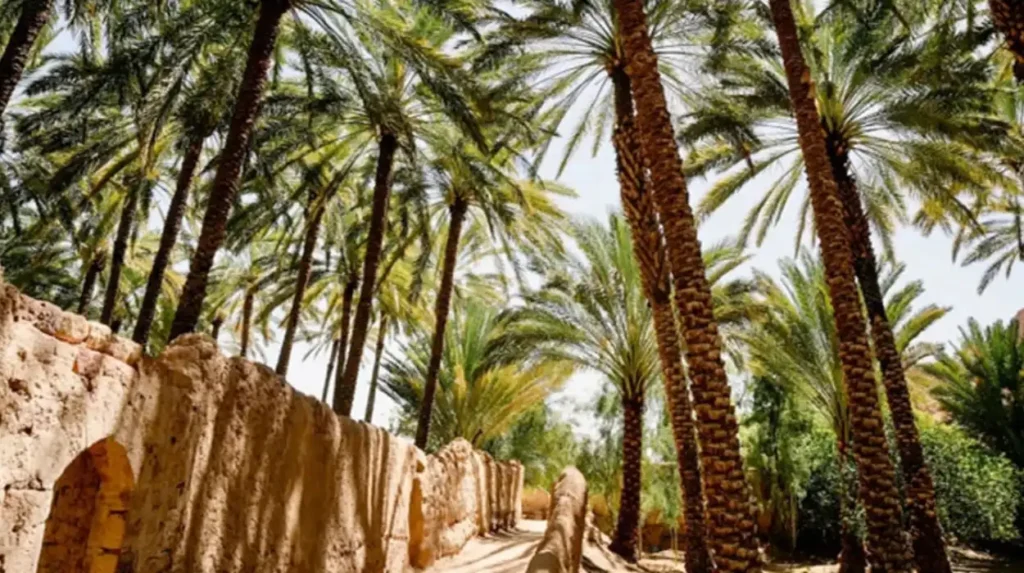Saudi Arabia, possessing big deserts and a very hot climate, has been officially declared as the host country for the FIFA World Cup 2034. While the visions of this tournament are indeed huge in the country, the environmental factors strongly question whether it is the most appropriate venue for hosting the event. From severe heat and water scarcity to carbon emission and ecological devastation, Saudi Arabia’s environmental aspects make it impractical and unsustainable.
Extreme Heat and Unsuitable Climate
The most crucial environmental issue in Saudi Arabia is its extreme heat. It is probably one of the hottest countries in the world since it often registers more than 45°C or 113°F during summer, and this reason is one behind FIFA having earlier rescheduled its 2022 World Cup tournament in Qatar into winter over this same issue. That is possibly what might end up happening for Saudi Arabia, too. And even at their northern extremes in winter, temperatures can still prove scorching for both spectators and players.
Energy Consumption and High Carbon Footprint
Saudi Arabia is sure to consume a lot of electricity to cool its stadiums and climatic conditions to the fans and players. Saudi Arabia still, therefore remains dependent on a good amount of fuel in the forms of oil and natural gas which, contributes to the worldwide carbon emissions as well as changing the climate.
Even though it is striving hard to provide renewable energy solar-based power, considering the scale and amount of energy requirements here, it is impossible that it will be utilized. The hosting of an event at this scale in desert regions is too pricey in terms of environmental cost.
By mid-century, projections suggest that mean annual temperatures could be over 29°C across much of the country, making conditions potentially deadly for human habitation without adequate cooling systems
Lack of Sufficient Available Water and Misuse of Resources
During the World Cup, when millions of spectators will visit, water demand will shoot into the stratosphere. Innumerable numbers of water units would gulp from the hotels, restaurants, stadiums, and fan zones. Vast quantities of irrigation water will be needed since the grass pitches must be maintained well in this desert land. This event will further deteriorate the water crisis in the country since Saudi Arabia is already experiencing problems in managing its groundwater reserves and desertification.
Economically, prolonged heatwaves are projected to reduce Saudi Arabia’s GDP by approximately 12.2% by 2050 due to impacts on agriculture and increased energy demands for cooling
Natural Habitats and Wildlife Destruction
The desert lands in the country have fragile and unique environments. Some harbor endangered species, including the Arabian oryx, sand gazelles, and desert foxes. Major developments will affect these species because they destroy natural habitats and food sources. Noise pollution and increased human activities and waste in the event will most likely deteriorate the situation for the local wildlife populations.
Air Pollution and Environmental Health Hazards
Saudi Arabia has already faced a poor condition in air pollution inside its metropolitan cities like Riyadh and Jeddah. Since oil refining, along with other heavy industries, plus vehicles form most of its country’s sectors, it gives badly polluted air quality to the nation.
Millions of tourists will pour into the country for the World Cup, and these will worsen further traffic jams and pollution. Flights, cars, and buses to be hired for fans, teams, and officials will give rise to more carbon dioxide (CO₂) and nitrogen oxide (NOₓ), hence aggravating air quality and citizens’ respiratory conditions.
Unsustainable Tourism and Waste Management Issues
Hosting a FIFA World Cup is one of the biggest international events; it has presented acute problems related to tourism-related environmental issues, which are waste management problems. Millions of visitors will have to be hosted in the kingdom of Saudi Arabia, which is a very heavy burden for the country’s waste disposal systems.
If such a massive inflow happens, given the underdeveloped facilities for recycling wastes in Saudi Arabia, it will probably trigger a pollution crisis and cause severe environmental degradation within a short period, as tourism creates plastic wastes, food wastes, and sewerage-all of which will end up in the landfill or ocean if not disposed of properly.
Greenwashing and Unattainable Sustainability Claims
Critics call these just greenwashing activity that appear environmentally friendly but continues to engage in other destructive practices to the environment. For example, although it launched many renewable energy projects, it is still the world’s top oil producer and exporter and intends to dig other oil wells. The contradiction in itself does not add much strength to the moves of the kingdom towards sustainability.
Hosting a “green” World Cup in a desert nation that depends heavily on fossil fuels seems to be quite an unrealistic proposition and throws in an open question of whether there are going to be any such actual environmental commitments honored.
As of 2023, Saudi Arabia falls short of its renewable energy target by 25.8 gigawatts and has added an average of 0.1 gigawatts of renewable capacity per year over the last decade. This is a far cry from its ambition to have 50% of national electricity come from renewable sources by 2030.
Conclusion
Although Saudi Arabia holds the financial and ambitious scope to host the FIFA World Cup 2034, it unfortunately could not host it because of the climatic challenges that it faces from its environmental side.
Countries that will offer the infrastructure for sustainability of infrastructure, renewable sources of energy, and suitable climate conditions for football will be considered. The potential long-term harmful effects of holding the World Cup in Saudi Arabia would be on the environment. It has now been realized that this kingdom is far from being the best host of the World Cup.

